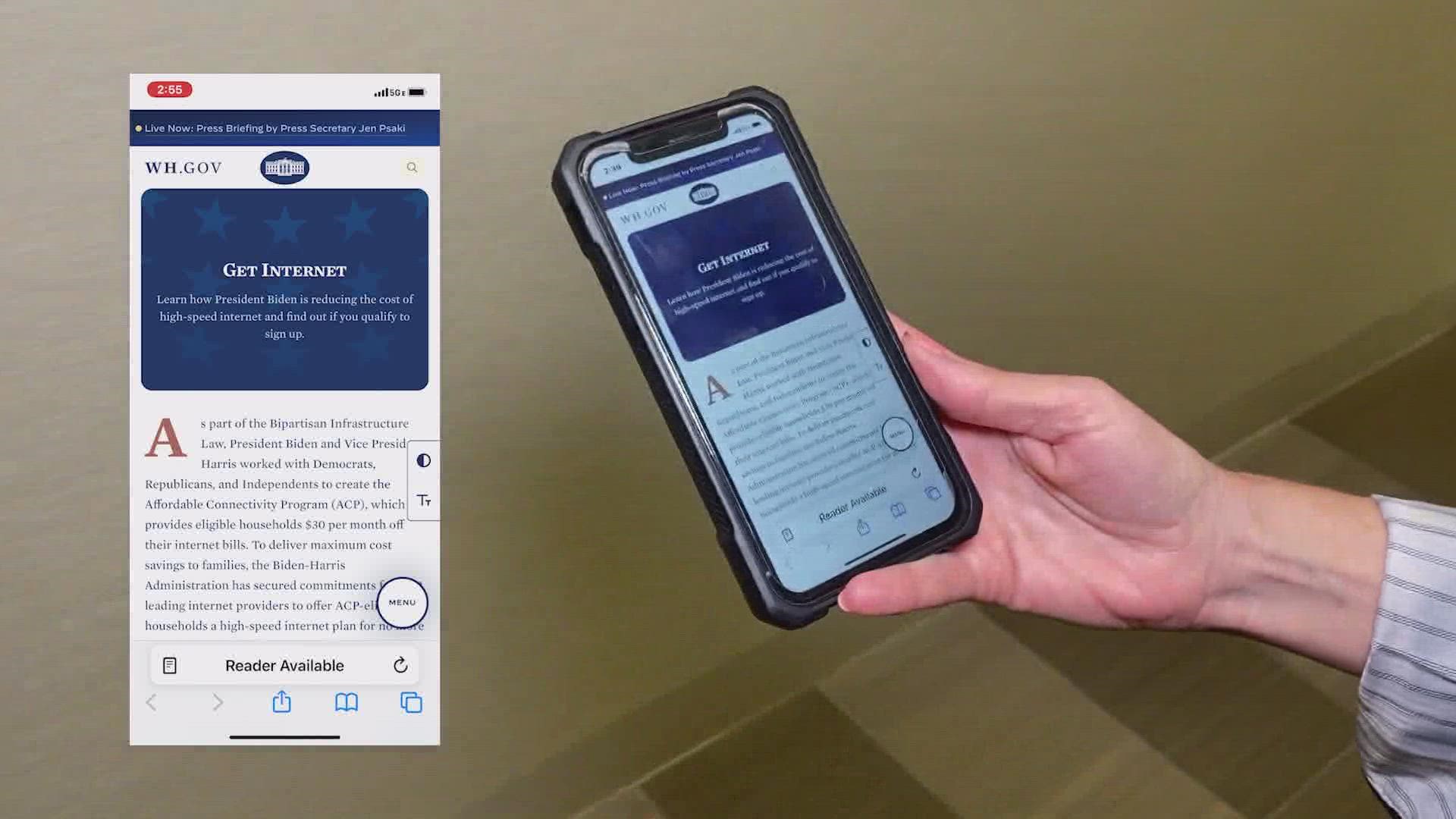WASHINGTON — High-speed internet could soon be free for tens of millions of American families and cheaper for many others.
In a move to bridge the digital divide, 20 of the nation’s internet providers have agreed to offer $30 a month plans for low-income families. That cost will be then covered by a federal subsidy under the Affordable Connectivity Program, which was part of the $1 trillion infrastructure package passed by Congress last year.
President Biden made the announcement on Monday.
“High speed internet is not a luxury any longer. It’s a necessity,” Biden said. “This is a case where big business stepped up. We’re trying to get others to do the same thing. It’s going to change peoples’ lives."
Biden noted that families of four earning about $55,000 annually — or those including someone eligible for Medicaid, SNAP, Federal Public Housing Assistance or Veterans Pension and Survivors benefit — will get a $30 monthly credit. That means about 40 percent of Americans will qualify.
There are multiple ways to see if you qualify: based on your annual household income or through participation in a government program. Check your qualification by visiting www.getinternet.gov.
The ACP is not only designed to benefit low-income families, but will also bring online access to people in rural areas and tribal lands.
Advocates were cautiously optimistic.
“It might be a game-changer,” said Marty Newell, coordinator for Rural Broadband Policy at the Center for Rural Strategies in Whitesburg, Kentucky, where he said slow internet has plagued residents and businesses alike.
Newell said he wanted to see more about what the program will mean going forward, but that his main question is — given that increased broadband access has generally been a bipartisan issue in Congress -- “What took them so long?"
During his White House run, Biden called expanding high-speed internet access in rural and low-income areas a priority. He has repeatedly spoken out about low-income families that struggled finding reliable Wi-Fi, so their children could take part in remote schooling and complete homework assignments early in the coronavirus pandemic, including, he said Monday, families driving to McDonald's parking lots to access wireless internet inside the restaurant.

